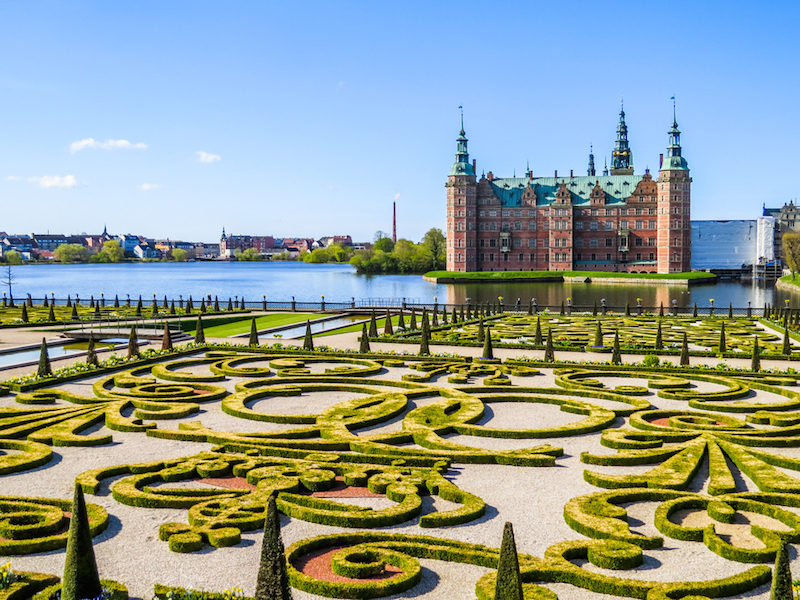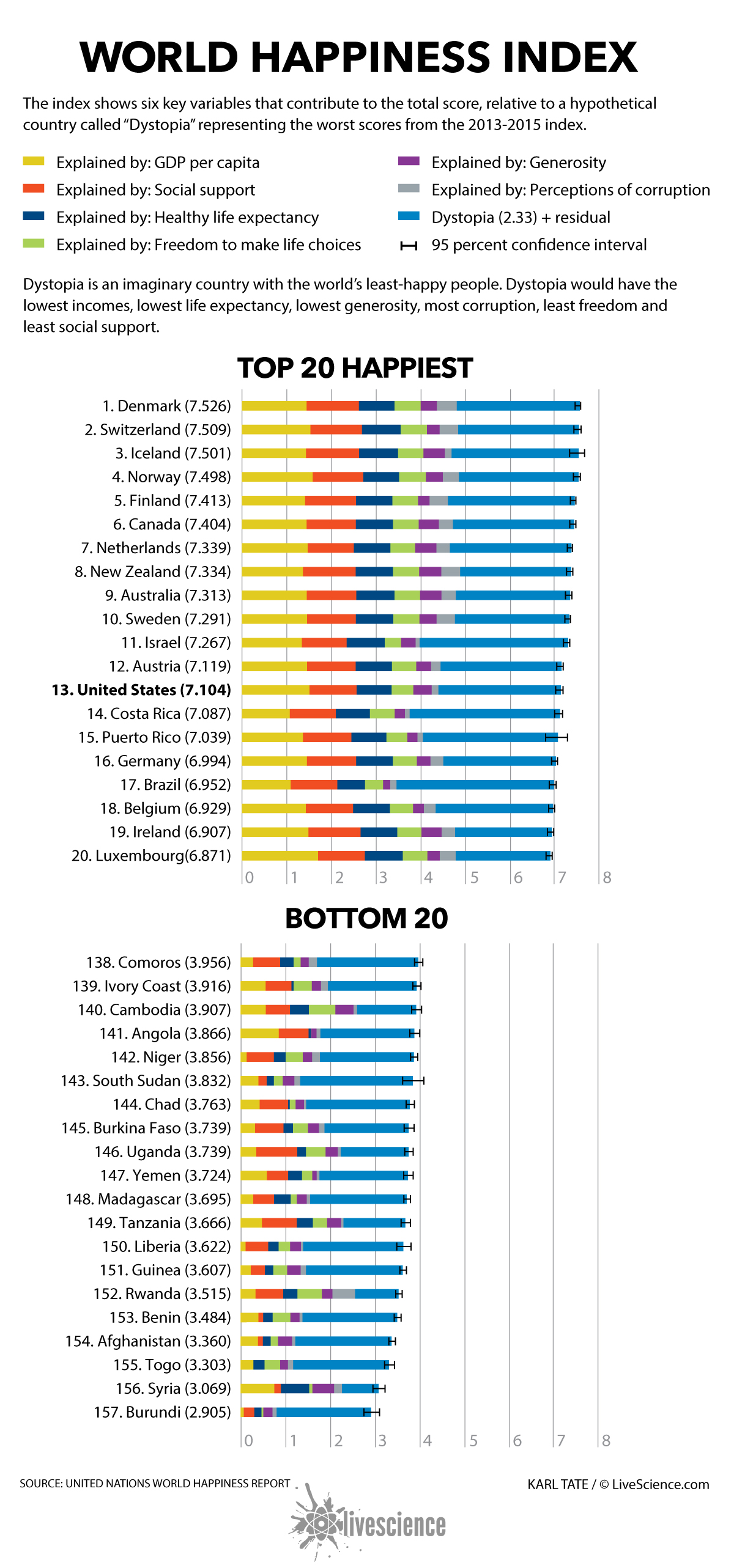Denmark Is the World's Happiest Country

The happiest country in the world is famous for its butter cookies, Lego bricks and fairy-tale writer Hans Christian Andersen — it's Denmark, according to the 2016 World Happiness Report.
Denmark's top spot isn't exactly a surprise. The country ranked first in the 2013 World Happiness Report and third in the 2015 report. In fact, most of the top 10 happiest countries have retained their spots from last year, "although there has been some swapping of places," the new report said.
The new report comes out just before World Happiness Day on March 20, and was released at the Bank of Italy during a conference on happiness and subjective well-being today (March 16). [See the Top 20 and Bottom 20 Happiest Countries of 2016]
Denmark scored a happiness rating of 7.526 out of a possible 10 points, with Switzerland (7.509), Iceland (7.501) and Norway (7.498) close on its heels. The United States (7.104) placed 13th — up two spots from last year, when it ranked 15th out of 158 countries.
Promote well-being

In an effort to foster sustainable development, U.N. Secretary-General Ban Ki-moon commissioned the Sustainable Development Solutions Network (SDSN) in 2012, with goals such as ending world hunger and poverty, ensuring healthy lives, and promoting well-being. The network of leaders from academia, governments and the private sector published their first happiness report in 2012 and every year after that except for 2014 because at first the report was published with18-month intervals.
The 2016 Happiness Report includes the rankings of 157 countries based on survey data from 2013 to 2015. Each country had an average sample size of 3,000 people who answered questions pertaining to six variables: gross domestic product (GDP) per capita, healthy life expectancy, social support, freedom, generosity and absence of corruption.
Sign up for the Live Science daily newsletter now
Get the world’s most fascinating discoveries delivered straight to your inbox.
The top 10 countries are "all small or medium-sized Western industrial countries, of which seven are in Western Europe," according to the report. Surprisingly, the top 10 countries averaged a happiness score of 7.4 — more than double the 3.4 average of the bottom 10 countries, according to the report.
The least-happy countries include Benin (3.484), Afghanistan (3.360), Togo (3.303), Syria (3.069) and Burundi (2.905).
Ministry of happiness
The rankings are telling, as they account for more than just the economics of a country, said Jeffrey Sachs, director of The Earth Institute at Columbia University and co-editor of the report. [5 Weird Ways to Measure Happiness]
"Measuring self-reported happiness and achieving well-being should be on every nation's agenda as they begin to pursue the Sustainable Development Goals," Sachs said in a statement. "Indeed, the goals themselves embody the very idea that human well-being should be nurtured through a holistic approach that combines economic, social and environmental objectives."
In fact, five governments (Bhutan, Ecuador, Scotland, the United Arab Emirates and Venezuela) have appointed "ministers of happiness," according to the report. However, it's unclear how much these ministers have helped to boost happiness. Though Venezuela created the position in 2013, the country dropped from the 20th- to 23rd-happiest country between 2013 and 2015, according to CNN.
Venezuela isn't the only country to move up or down the blissful ladder. The authors of the report compared data from 2005-2007 with that from 2013-2015, and found that out of 126 countries, 55 showed significant increases in happiness while 45 showed significant decreases. The remaining 26 countries had no significant change, the researchers found.
"The rankings show both consistency and change," said study co-editor John Helliwell, a professor emeritus of economics at the University of British Columbia. "The consistency at the top reflects mainly that life evaluations are based on life circumstances that usually evolve slowly, and that are all at high levels in the top countries.
"The year-to-year changes are also moderated by the averaging of data from three years of surveys in order to provide large sample sizes," he added. "However, when there have been long-lasting changes in the quality of life, they have led to large changes in life-evaluation levels and rankings, as shown by the many countries with large gains or losses from 2005-2007 to 2013-2015."
Overall, average happiness worldwide is 5.1, the researchers found. They added that people tend to be happier in societies that have more equal levels of happiness among its people.
Follow Laura Geggel on Twitter @LauraGeggel. Follow Live Science @livescience, Facebook & Google+. Original article on Live Science.

Laura is the archaeology and Life's Little Mysteries editor at Live Science. She also reports on general science, including paleontology. Her work has appeared in The New York Times, Scholastic, Popular Science and Spectrum, a site on autism research. She has won multiple awards from the Society of Professional Journalists and the Washington Newspaper Publishers Association for her reporting at a weekly newspaper near Seattle. Laura holds a bachelor's degree in English literature and psychology from Washington University in St. Louis and a master's degree in science writing from NYU.










